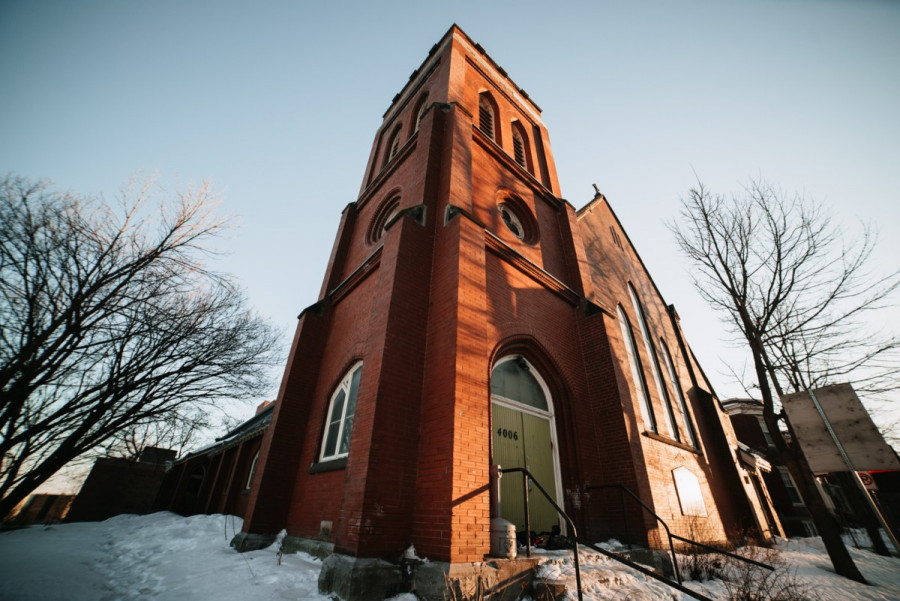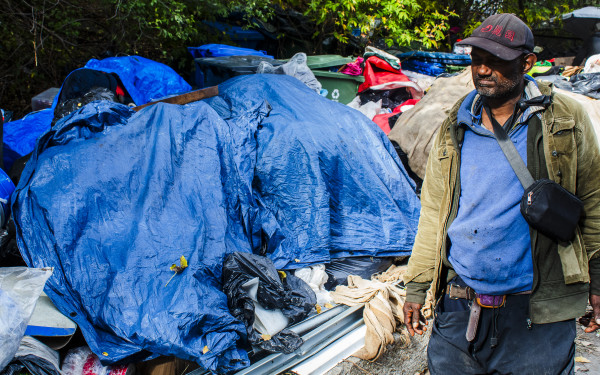Volunteering and alternative ways to aid with Montreal’s unhoused population
Donation drives, preparing food at home, and offering personal skills can be just as effective
Volunteering is one of the most known and effective ways to help the unhoused population. What’s not always obvious, however, is that there are actions, both big and small, that can be just as impactful.
For students, finding ways to sustainably help with the unhoused population of Montreal may seem intimidating, and many don’t know the first steps to take. While shelters and other organizations are continuously seeking volunteers, time and physical presence are not always a luxury students can spare. Students can, however, volunteer for short periods of time, make donations, offer up their personal skills, and even tackle the larger systemic housing problem at large.
Volunteering
Wimmy Milly, co-founder of McGill Students for The Open Door, understands the impact volunteering can have.
“Doing something like chopping vegetables in the kitchen or folding laundry is something so simple and mundane almost, but it makes a tangible difference,” Millersaid. “Being able to spend some time and see the difference that you're making in your own community can connect you better to it, and it's very grounding.”
As a third-year immunology student at McGill, Miller is also aware that students don’t always know how to get started, nor do they have a schedule to accommodate extensive hours of volunteering.
“I realized as a student here, a lot of my peers wanted volunteer opportunities, but maybe didn't know where to look,” she said. “We've split up the shifts at The Open Door into smaller chunks so that they’re easier to fit in between classes or around schedules.”
Several may volunteer two hours a week, or even every two weeks, but it remains effective.
John Tessier, the centre coordinator for The Open Door, emphasized the need for volunteers.
“A place like ours doesn't function without volunteers, whether it be client volunteers, [clients] who step in and help out, or people from the outside because unfortunately the government never gives [an] adequate amount of funding that's needed to do something like this,” he said.
Donations
Gathering donations is another great way to help centres like The Open Door. Boots, winter coats, socks, underwear, toothbrushes and toothpaste, razors, and other essentials are always in demand, said Tessier.
Margo Buchanan, program coordinator for Resilience Montreal, urged interested donors to ask centres and shelters what specific donations they need most.
“For us, we have clients that sleep outside. Having a sleeping bag or not having a sleeping bag could decide whether someone makes it through the night,” she said.
Buchanan noted donations of small and inexpensive items are always welcome. Items as small as spatulas or toilet brushes can help furnish those who are housed, and are more accessible.
“If you don't have $1 million but you have $3, you can still contribute,” she said.
Offering personal skills
Volunteering makes a large difference by taking some of the weight off workers in the field, but there are other ways to step in as well, Buchanan said.
“It's so hard at the end of the day for so many people that are exhausted and there's a huge amount of burnout in the field right now,” she said. “Volunteering is so helpful, but there are also other ways to help in the vicinity without necessarily having to come through the door.”
Buchanan explained something as simple as making sandwiches at home has an impact. She explained there's a network of sandwich sharing between shelters and it has produced over 30,000 sandwiches for those in need since the beginning of the pandemic.
Community Cooks Collective is an initiative popular among Concordia and McGill students. The group offers free ingredients to those interested, and on Sunday nights throw virtual cooking parties. All of the meals prepared are then brought to different shelters. Bread and Beyond is another organization for food networking among the unhoused population.
Buchanan also suggested finding different mutual aid organizations to help, saying they can often be found on social media.
“It seems so minimal, but if you follow projects that you like and share their stuff so that they get more traffic. That is so helpful,” she said. “Online activism is such a thing. It actually provides real funds to charities.”
Basic skills can also be helpful to centres and shelters. Buchanan explained many organizations look for drivers to exchange items and resources among shelters. They also always need people who know how to sew to fix ripped or broken donated items.
“As long as you have an open mind and you're willing to do whatever people need you to do, then you'll be incredibly helpful to organizations.”
Tackling the bigger picture
Student-run organization Montreal Solidarity Supply emphasizes students should care about the housing crisis on a larger level because of their direct link to it.
“The precarity, the living conditions, and the incredible cost of housing are all things that students personally experience,” explained the group. “Many of us live one or two paychecks away from missing rent and being evicted from our homes. This is because the relationship we enter when becoming a renter, and the underlying institution of private property, is fundamentally a relationship of exploitation.”
MSS said the most important work is attacking the systemic causes of houselessness, lowering the cost of living, and working towards the ultimate goal: decommodifying housing.
“Organize your building into a tenants union and demand lower rent and better living conditions, organize your workplace to demand higher wages and better working conditions. If someone is moving into the apartment you’re moving out of, offer them a lease transfer instead of having to renegotiate with the landlord, that’s solidarity,” they said.
A previous version of this article incorrectly stated that Community Cooks Collective delivers free ingredients directly to the homes of volunteers. The Link regrets this error.






_600_375_s_c1.png)
